Mandi Bean's Blog, page 5
May 10, 2023
I Went to an Author Q and A. And it Changed my Life.
Basically.
But I’ve written about Andrew McCarthy before. Like last summer, when I devoured his memoir.
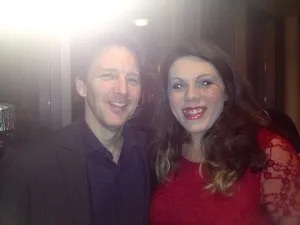
And here I go again. Writing about Andrew McCarthy. It was his author event that changed my life. Or, at the very least, part of my perspective on life.
His newest work, Walking With Sam, is an account of him and his oldest son walking the Camino de Santiago, a 500-mile pilgrimage from the south of France to a cathedral in Spain. In the conversation before the question-and-answer portion of the evening’s event, he talked about his relationship with his son and how he was constantly comparing it to his relationship with his father. He talked about fear and vulnerability, and how those emotions unjustly get a bad rap, especially vulnerability.
According to McCarthy, vulnerability makes space, and that space can be filled by all sorts of opportunities and emotions and connections. Traveling taught him that; to be in a new, unfamiliar place–especially when you don’t know the language–boosts you from you comfort zone. And so you have to be vulnerable and ask for help, and that allows space for someone else to help you and establishes a connection. And as McCarthy rightly points out, isn’t that the point? Isn’t that we’re all looking for?
I wonder if that’s an inevitable theme of travel writing. McCarthy’s first book, The Longest Way Home, was an intimate telling of him traveling all over before his second marriage. I remember being surprised and impressed by how he allowed himself to be vulnerable in the narrative. He didn’t hold back and he didn’t suppress or edit anything to bolster his movie star image.
Watching the conversation on the stage of the Algonquin Arts Theater, my lips kept getting stuck on my teeth because my mouth was open the whole time because I couldn’t stop smiling. He was as charming and thoughtful and intelligent as ever.
I didn’t know he was willing to take selfies. I was underprepared. The last time we met, the first time, I was charming and clever. I got to say something because he signed my book and asked my name. This time, we just filed in, snapped a picture, and walked out. I was nervous. I was awkward. I felt like I blew it.
Which is silly.

Andrew McCarthy holding court in front of over 200 women (and a handful of guys) at the Algonquin Arts Theatre in Manasquan.

My colleague and friend AND talented writer who has a novel being published soon–Jill Ocone–secured the tickets for us. We were SO excited.

I LOVE ANDREW McCARTHY.

Look at him patiently waiting for me to unlock my phone like the fumbling idiot I was.
So How Did This Change My Life?Andrew McCarthy talked about making space for other emotions, like joy. He stressed the importance of finding joy and being aware of its presence in life. Today, I received two rejections from literary agents, and one was from the agent who had requested a full manuscript. I wanted to despair. I wanted to order food and sulk on the couch.
But I can query more agents. And what a joy it is to be able to create something worth sharing. McCarthy talked about that, too; how it was such a blessing for him to have lived a life with creativity at its center. I can keep writing. I can keep trying.
He said a good morning was sitting down and getting the writing done. I need to do more of that because I know that brings me joy. I don’t have to focus on the rejection and the bitter disappointment. I can change my perspective.
Thank you, Andrew McCarthy.
McCarthy said he was most like his character in “St. Elmo’s Fire.” SWOON.The post I Went to an Author Q and A. And it Changed my Life. appeared first on mandi bean: writer.
May 2, 2023
National Drowning Awareness Month

May is National Drowning Awareness Month. I thought I’d write about Maddie.
As I type, I can hear the air being pushed through my nose. If I settle back in my computer chair, I can feel my chest rise and fall from the effort of expanding and deflating my lungs. I know I’m breathing. I’ve only started to become more aware of my breath, and of my breathing patterns, since February 28, 2021.
That was the day my niece stopped breathing. We weren’t sure she’d ever breathe again.
My niece is Madelyn Grace Wagenhoffer. She’s the youngest of four children and the only girl. Her mother, Melissa, wanted a girl so bad. After three rambunctious boys, who could blame her? I too longed for a little lady to play dress up with and to watch fairy tales with. It was a rough pregnancy and Melissa was in danger more than once. But Maddie arrived safe and sound a week before Christmas just over four years ago, just like a little miracle.
Maddie’s always been a miracle.
When she fell in the family pool and drowned, I never really believed she would die. I couldn’t explain it then, and I’m at a loss for words now (which doesn’t bode well for my career as a writer, I’m sure), but I knew she’d survive. I screamed when my dad called to tell me Maddie and Melissa were on the way to the hospital and that “it didn’t look good.” I was in my house I’d lived in for six years. I was still working to make it my own, but I thought I was finally settling into a groove, like I was finally becoming a real adult. That lazy Sunday afternoon, the only thing I’d settled into was my groove on the couch. Then my dad called and told me Maddie had fallen in the pool and suddenly, I was crying, calling my dad a liar and begging him to admit he was lying about my niece. He asked me if I wanted him to come get me and I spat out “NO!” and hung up. I paced my living room, devastated and overwhelmed. I called a friend and she tried to talk me through packing. Despite her best efforts, I threw nothing that would serve me in Florida into a duffel bag. I called my dad back, apologized, and he came and picked me up. Within the hour, we picked up Mom and were on our way to Florida to see Melissa and Maddie.
Driving down to Florida, I prayed the whole time. I kept praying the “Our Father” over and over again. It was all I could do. I felt so helpless. I was trying hard not to think of my precious niece flailing in the water with panic. I lost my breath when I imagined her tiny lungs filling with water and I slapped my forehead as hard as I could to clear my mind of those images. I mumbled the prayer louder and pressed my palms together tighter, like physical exertion could make sure God heard me. It was like the tensing of my muscles could make God answer in the way I needed him to. I just wanted to make it not be true.
Sometime after midnight, we got word that Maddie wasn’t braindead. We breathed a sigh of relief, but the doctors told us the next 48 to 72 hours were critical. I wanted Maddie to wake up. I wanted her eyes to open. I wanted her to be back to normal, like none of this tragedy had ever occurred. We got to Florida in the morning hours of the next day, and we just waited and cried and prayed. The way the doctors talked to my sister, it looked like there was nothing more we could do other than plan a funeral and say goodbye to our miracle. At one point, one doctor advised my sister to let Maddie go. That would have meant starving her to death because there was brain activity and a heartbeat. The doctor insisted Maddie’s quality of life would be nonexistent and that the best course of action would be to let her go. But none of it seemed right, and it didn’t feel right, and Melissa marched herself back over to us and told us that no, it wasn’t over. We were going to fight for Maddie as hard as we could.
A couple of weeks later, Maddie was breathing on her own. Thank God we didn’t listen to that doctor. Two years later, Maddie’s still here. She’s still fighting. We have to fight with her.
She’s getting a little better every single day.
Before Maddie came home from the hospital, we were all living at my sister’s house because we all wanted to be together but no one wanted to be inside. The pool was visible from almost all the windows in the house, and the memories of family games of volleyball and hanging out had been replaced by the horrendous images of Maddie’s lifeless body being carried in, of Missy frantically performing CPR, of her oldest brother running to get towels and slipping on the tile floor.
We moved a table out on the lawn and had all our meals there, meals that were delivered by kind-hearted and sympathetic neighbors and coworkers and friends. We only went inside to sleep. As soon as we could, we moved the family into a new home. I stayed there a little while longer, but I had to go back home for work even though I didn’t want to leave. I was a wreck all that day, constantly crying softly and dreading my actual departure. I went to the hospital with Melissa to visit Maddie, and I wept as quietly as I could as Melissa climbed into the bed beside her baby girl and cried, apologizing for not being there when she fell into the pool, and begging Maddie for a sign.
Melissa composed herself and climbed out of the bed. She went to suction Maddie and as she was doing so, Maddie moved. Maddie’s hand moved.
I gasped and nearly shouted. Melissa used the suction tool again and Maddie moved again. I started recording on my phone. Maddie moved her hand and her foot, reacting to what Melissa was doing. It was one of the many signs Maddie gave us that she’s still here, that she’s still fighting.
I had to go back to work for two weeks. I basically just got everything in order so I could take a leave of absence and return to Florida. I sold my house and moved back in with my parents. After spending so much time together, no one wanted to be alone. In a rearranging group, we’ve been traveling across the country to seek out alternative treatments for Maddie’s profound brain injury. I went to New Orleans with my sister and my niece so she could receive hyperbaric oxygen treatments. We lived in the city and just outside of it in different houses for a month.
But while we were there, Maddie nearly lost her life because of a range of infections. My niece contracted three infections which nearly killed her. I remember being so angry, raging against God and everyone else, because there was no way she had come so far to die in an uncomfortably small, gray apartment in Louisiana. To lose her then would have been cruel. I watched Melissa try to shake the life back into her for a moment before I could feel myself coming apart. I took my cell phone outside and called 911 and waited out there for the ambulance. I couldn’t sit and watch my beloved niece slip away in the arms of my beloved sister. I should have been braver, but I didn’t have it in me then.
I do now. I know now that I can never give up as long as Maddie doesn’t. If she’s breathing in and out, if her heart’s beating, if she’s doing everything she can to recover, then so am I. So is her mother. So is her entire family. We’re fundraising and praying and traveling and learning and changing trach tubes and making food. I know more about brain injuries and alternative treatments than I ever knew was possible.
I am brave because of Maddie. I am brave because of Melissa.
We ended up at the Children’s Hospital in Louisiana for a week. Once Maddie was discharged, we returned to Florida. I stayed as long as I could before I had to return to New Jersey to work one day to qualify for health insurance for the summer.
I had plans to go to the University of Limerick to earn my Master’s degree in Creative Writing. I was meant to go the year before, but I delayed the trip and deferred my position because of the pandemic. I didn’t want to go after Maddie’s accident, not with everything that was happening, but Melissa told me I had to go or else she would feel bad. She understood better than any of us that life had to go on. She has three other kids to care for and doesn’t have the luxury of staying in bed and crying all day. We have to keep going for Maddie because Maddie hasn’t stopped. She’s actually shown cognitive improvement thanks to these alternative therapies.
So with my sister’s blessing, I left. It’s been said that change is a constant part of life. I’ve heard that saying at least a hundred times in my own life, and I thought I understood it, but I didn’t. Not really. Not until my niece drowned. Her older brother pulled her from the pool and she was able to be resuscitated, but she’s been left with a profound brain injury. Everything changed for me and my family in the course of thirty minutes.
I don’t know if she’ll fully recover. She might never read a book, or make friends at school, or have her first sloppy kiss, or put on makeup, or go dancing, or fall in love and get married and have a family, or drive a car, or have a job, or have a life. I don’t know what tomorrow will bring.
And my optimism wanes like the moon. Sometimes, it’s full and bright and I can navigate through the darkness. Sometimes, it’s been an indifferent sliver and nothing more. It enhances the shadows and everything is scary and dark and I want to stay still. I just want to curl around myself and listen to my own breathing. And if that’s how I feel sometimes, it’s difficult to comprehend the extreme emotions my sister is constantly experiencing.
The hardest lesson I’ve had to learn is that life does go on. It felt paused during the pandemic and then it felt completely stopped after Maddie’s accident. But in the time since, I’ve had to confront the reality that time never paused or stopped. Maddie’s four years old. She lost two baby teeth recently. Time marches on.
I miss Maddie. She’s still here, and I am so grateful, but I want her to sing and dance with me. I want her to watch “The Labyrinth” and “Stranger Things” with me. I want to take her out of her crib in the morning and feed her Coco Puffs and make her a baba and watch the Disney Family Sing-A-Long. I want to slow time, stop time, reverse it. I want all this time I’m losing back.
But I know I should be looking forward. And I’m trying. But it’s hard.
[image error]Pexels.com","created_timestamp":"0","copyright":"","focal_length":"0","iso":"0","shutter_speed":"0","title":"left and right hands","orientation":"0"}" data-image-title="pexels-photo-2821040" data-image-description="" data-image-caption="Photo by Wendy Wei on Pexels.com
" data-medium-file="https://i0.wp.com/mandibeanwriter.wpc..." data-large-file="https://i0.wp.com/mandibeanwriter.wpc..." decoding="async" loading="lazy" width="660" height="988" src="https://i0.wp.com/mandibeanwriter.wpc..." alt="left and right hands" class="wp-image-5894" srcset="https://i0.wp.com/mandibeanwriter.wpc... 868w, https://i0.wp.com/mandibeanwriter.wpc... 200w, https://i0.wp.com/mandibeanwriter.wpc... 684w, https://i0.wp.com/mandibeanwriter.wpc... 768w, https://i0.wp.com/mandibeanwriter.wpc... 182w" sizes="(max-width: 660px) 100vw, 660px" data-recalc-dims="1" />Photo by Wendy Wei on Pexels.comThe post National Drowning Awareness Month appeared first on mandi bean: writer.
April 26, 2023
Wrapping Up National Poetry Month

April’s coming to a close and so is National Poetry Month. I wish I had done more to celebrate in my classroom, like a poetry unit or the “Poem in my Pocket” activity. I wish I had written some poetry.
But, I am proud to say that I found a poem for My Favorite Friend. I thought long and hard about their favorite shows and music and decided to send:
"A Paper/ A Person/ A Promise" by Dr. Earl ReumOnce on a yellow piece of paper with green lineshe wrote a poemAnd he called it "Chops"because that was the name of his dogAnd that's what it was all aboutAnd his teacher gave him an Aand a gold starAnd his mother hung it on the kitchen doorand read it to his auntsThat was the year Father Tracytook all the kids to the zooAnd he let them sing on the busAnd his little sister was bornwith tiny toenails and no hairAnd his mother and father kissed a lotAnd the girl around the corner sent him a Valentine signed with a row of X'sand he had to ask his father what the X's meantAnd his father always tucked him in bed at nightAnd was always there to do it.Once on a piece of white paper with blue lineshe wrote a poemAnd he called it "Autumn"because that was the name of the seasonAnd that's what it was all aboutAnd his teacher gave him an Aand asked him to write more clearlyAnd his mother never hung it on the kitchen doorbecause of its new paintand the kids told himthat Father Tracy smoked cigarsAnd left butts on the pewsAnd sometimes they would burn holesThat was the year his sister got glasseswith thick lenses and black framesand the girl around the corner laughedwhen he asked her to go see Santa ClausAnd the kids told him whyhis mother and father kissed a lotAnd his father never tucked him in bed at nightAnd his father got madwhen he cried for him to do it.Once on a paper torn from his notebookhe wrote a poemAnd he called it "Innocence: A Question"because that was the question about his girlAnd that's what it was all aboutAnd his professor gave him an Aand a strange steady lookAnd his mother never hung it on the kitchen doorbecause he never showed herThat was the year that Father Tracy diedAnd he forgot how the endof the Apostle's Creed wentAnd he caught his sistermaking out on the back porchAnd his mother and father never kissedor even talkedAnd the girl around the cornerwore too much makeupThat made him cough when he kissed herbut he kissed her anywaybecause that was the thing to doAnd at three a.m. he tucked himself into bedhis father snoring soundly.That's why on the back of a brown paper baghe tried another poemAnd he called it "Absolutely Nothing"Because that's what it was really all aboutAnd he gave himself an Aand a slash on each damned wristand he hung it on the bathroom doorbecause this time he didn't thinkhe could reach the kitchen.It was featured in the novel The Perks of Being a Wallflower by Stephen Chbosky and in its film adaptation, though the scene was later deleted:
From the 2012 film, “The Perks of Being a Wallflower”And my friend loved it.
They wrote, “Wait…I did that poem. DO I LIKE POETRY NOW?! I like that it reads more as a story, it doesn’t try so hard.”
And that’s the best thing about poetry: it’s supposed to be personal.
I consider that a successful end to National Poetry Month.
The post Wrapping Up National Poetry Month appeared first on mandi bean: writer.
April 19, 2023
How to Fall in Love With Poetry
Photo by Snapwire on Pexels.com
" data-medium-file="https://i0.wp.com/mandibeanwriter.wpc..." data-large-file="https://i0.wp.com/mandibeanwriter.wpc..." decoding="async" width="660" height="495" src="https://i0.wp.com/mandibeanwriter.wpc..." alt="achievement confident free freedom" class="wp-image-5862" srcset="https://i0.wp.com/mandibeanwriter.wpc... 1733w, https://i0.wp.com/mandibeanwriter.wpc... 300w, https://i0.wp.com/mandibeanwriter.wpc... 1024w, https://i0.wp.com/mandibeanwriter.wpc... 768w, https://i0.wp.com/mandibeanwriter.wpc... 1536w, https://i0.wp.com/mandibeanwriter.wpc... 1200w, https://i0.wp.com/mandibeanwriter.wpc... 800w, https://i0.wp.com/mandibeanwriter.wpc... 400w, https://i0.wp.com/mandibeanwriter.wpc... 200w, https://i0.wp.com/mandibeanwriter.wpc... 363w, https://i0.wp.com/mandibeanwriter.wpc... 1320w" sizes="(max-width: 660px) 100vw, 660px" data-recalc-dims="1" />Photo by Snapwire on Pexels.comWriting UpdateA literary agent requested the full manuscript of Lightning Strikes! This agent told me it would take six to eight weeks for me to hear back, which puts the response window at the end of May/beginning of June. Please keep your fingers crossed!
I also received a really nice rejection. The email read, “You have an interesting story to tell and there’s a lot to like about your approach.”
So I’ve been feeling all sorts of confident lately. At 34-years-old, I’m wearing a two-piece bathing suit for the first time in my life. And I colored my hair. Generally, a woman changes her hair to signal a breakdown or a breakthrough. I think this might be a breakthrough.
National Poetry MonthI decided to channel some of my newfound confidence in getting one of my favorite friends to like poetry. My Favorite Friend told me that they didn’t understand poetry and I couldn’t believe it because My Favorite Friend is one of the most intelligent, empathetic, and emotionally intelligent people I have the privilege of knowing.
I told her so, and she acquiesced to maybe being into some “angsty” poetry.
Despite reading and heavily annotating Edward Hirsch’s How to Read a Poem and Fall in Love with Poetry (which I mentioned last week), the best I could do was Google “angsty poetry.” And that brought me to this poem by Amy Key:
I disowned my real pain & engaged with its subordinates:
despicable neediness, heroic guilt and undeterrable envy. Each day
I woke trussed up with this hernia of failure, bleat bleat.
There was inevitable blood; I slept on a pyre of bottles. Stalked
by motherhood, unable to summon my latent powers. Leaves
blew into the hallway and did their ageing there, the eager wind
fussed with them like the beaded fringe of a shawl at war with itself.
Powerful identification with the leaves. In the garden, splendour
made its entrance while I wasn’t looking. I was quaking
all this time, my whole body a throat stoppered by tears. I tried
to will dreams of romantic redemption, but my brain swatted
them away, like flies gunning for something you really want to eat.
My Favorite Friend’s Response: I don’t get it… my eyes glazed over about 3 lines in but my brain kept reading and before I knew it, the poem was over. The only thing I’ll remember about this poem is “bleat bleat” which may have to be a part of my every day vocabulary. I liked the fly imagery though…
I have to give My Favorite Friend credit. They knew enough to pay attention to diction (also known as word choice), which is a fundamental poetic device. And they connected with the fly imagery.
But they didn’t fall in love with the poem. So maybe my newfound confidence doesn’t extend to facilitating a love affair with poetry.
Where did I go wrong?
According to Hirsch, “Reading poetry is a way of connecting–through the medium of language–more deeply with yourself even you connect more deeply with another,” meaning the writer. Poetry has to be personal. And why did I listen to My Favorite Friend about their supposed preferred theme when they don’t even read poetry?
Hirsch also says, “The reader completes the poem, in the process bringing to it his or her own past experiences.” So the question really becomes: do I know my friend well enough to send the right poem?
I think I do. I’ll let you know how round two goes.
The post How to Fall in Love With Poetry appeared first on mandi bean: writer.
April 12, 2023
How to Make the Most of National Poetry Month
Photo by Wallace Chuck on Pexels.com
" data-medium-file="https://i0.wp.com/mandibeanwriter.wpc..." data-large-file="https://i0.wp.com/mandibeanwriter.wpc..." decoding="async" width="660" height="440" src="https://i0.wp.com/mandibeanwriter.wpc..." alt="brown leaves on book page" class="wp-image-5836" srcset="https://i0.wp.com/mandibeanwriter.wpc... 1880w, https://i0.wp.com/mandibeanwriter.wpc... 300w, https://i0.wp.com/mandibeanwriter.wpc... 1024w, https://i0.wp.com/mandibeanwriter.wpc... 768w, https://i0.wp.com/mandibeanwriter.wpc... 1536w, https://i0.wp.com/mandibeanwriter.wpc... 1200w, https://i0.wp.com/mandibeanwriter.wpc... 408w, https://i0.wp.com/mandibeanwriter.wpc... 1320w" sizes="(max-width: 660px) 100vw, 660px" data-recalc-dims="1" />Photo by Wallace Chuck on Pexels.comIn my 2022-2023 planner, during this week which is my Spring Break, I wrote in all capital letters: START LIVING MY BEST WRITING LIFE! What better time to start than during National Poetry Month?
Monday, I went to Barnes and Noble and wrote about 700 words! Honestly, I think writing in coffee shops is really going to help my writing life, writing schedule, and writing process. Sitting inside my rental does nothing for my mental health, and that in turn impacts my creative health. Also, I think now is a good time to mention that I’ve queried 35 agents and been rejected by 6. I’ve never been good with numbers, but the odds might still be in my favor? Maybe?
So every Monday, I’m going to visit a bookstore and/or café to get some serious writing done.
Side note: I’d been craving a blueberry scone for weeks. The Starbucks inside the Barnes & Noble did not disappoint.
Since I was in a bookstore, and since it is National Poetry Month, I purchased two books: How to Read a Poem and Fall in Love with Poetry by Edward Hirsch and The FSG Poetry Anthology, edited by Jonathan Galassi & Robyn Creswell. I’m reading and annotating, hoping it will not only impact my creative life, but my professional life as well. I want to study more poetry in my English classes and if I end up teaching creative writing again, the poetry unit will not doubt be positively affected and expanded.

 What else can you do to celebrate National Poetry Month?
What else can you do to celebrate National Poetry Month? This website has some great ideas:
Write poetry dailyThis is exactly what I did last year; I posted them on Instagram. It was a lot of fun!
Arrange or attend a poetry event
I’ve been DYING to go to in-person literary events, and a poetry-related one would be fantastic. I need to do some research …
Rediscover famous poets
Hence why I purchased the poetry anthology. Also, the website suggests specifically exploring poets who are nearly forgotten, which is a beautiful sentiment, I think.In Closing
Here’s one of my all-time favorite poems 
by e.e. cummings
somewhere i have never travelled, gladly beyond
any experience, your eyes have their silence:
in your most frail gesture are things which enclose me,
or which i cannot touch because they are too near
your slightest look easily will unclose me
though i have closed myself as fingers,
you open always petal by petal myself as Spring opens
(touching skillfully, mysteriously) her first rose
or if your wish be to close me, i and
my life will shut very beautifully, suddenly,
as when the heart of this flower imagines
the snow carefully everywhere descending;
nothing which we are to perceive in this world equals
the power of your intense fragility: whose texture
compels me with the colour of its countries,
rendering death and forever with each breathing
(i do not know what it is about you that closes
and opens; only something in me understands
the voice of your eyes is deeper than all roses)
nobody, not even the rain, has such small hands
The post How to Make the Most of National Poetry Month appeared first on mandi bean: writer.
April 5, 2023
National Poetry Month!
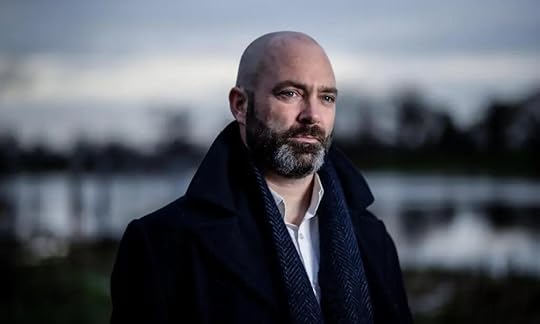

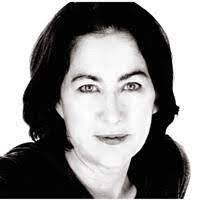
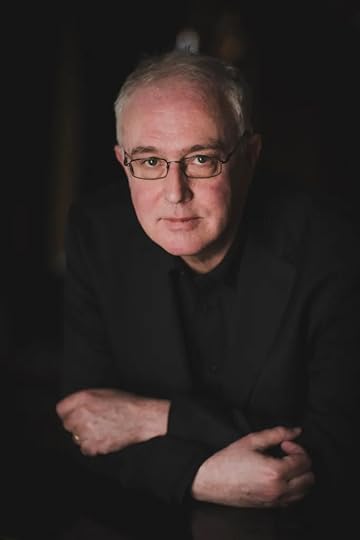
Back in Ireland, at the University of Limerick, I made sure I never missed a poetry session with Dr. Emily Cullen in my Spring semester. Why?
As Professor Joseph O’Connor taught, “words are sounds before they’re anything else.” He emphasized that writing should have musicality, reminded us that the sonic landscape of writing does exist.
Carrying meaning is only one thing words do and it might not even be the most important thing they do. Words make music.
Professor Joseph O’Connor
Professor O’Connor went on to teach that there should be a reason for every sound, that our writing should really and truly be a sonic force as much as anything else. Beautiful writing finds a playful, percussive pleasure, and it doesn’t have to be orchestral, symphonic, or loud. Really, he taught us to just be aware that our writing has music whether we like it or not.
He suggested we read E.E. Cummings, Dylan Thomas, Jack Kerouac, and Marcel Proust.
In his Storytelling class, Donal Ryan taught us that great writing has a compression and an economy to it, an idea that was often reinforced in lectures by Professor Sarah Moore Fitzgerald.
So why should writers read poetry?Writers should read poetry for several reasons:
Be aware of the languageEVERY WORD MATTERS. ALWAYS.
The experience of it
Dr. Emily Cullen taught me that poetry doesn’t need to be dissected; it needs to be experienced (and enjoyed). Good poems often fracture assumptions and surprise the reader. The best poems present paradoxes and tensions in compact containers. Readers experience those revelations and thus complete the cycle of reading; what starts in a writer’s mind always ends in the reader’s mind.
Bring elements of craft to consciousness
Diction, tone, image, euphony, rhythm, rhyme, syntax, register, and epiphany are all poetic elements.
– Diction is word choice. Words are the smallest unit of communication and are thusly the building blocks of all expression. As such, they should be considered very carefully. Every word matters in prose and in poetry, but especially in poetry because space is limited.
– Tone has a lot to do with the writer’s voice, which is at the heart of every written work. The words a writer chooses to use to express their attitude towards their subject or audience is how the reader/writer relationship is crafted.
– Imagery and using the senses is fundamental to creative writing and absolutely necessary to prevent flat writing.
– Euphony is a sound that is pleasing to the ear. Poetry is meant to be read aloud, but all writing has musicality and the best writing acknowledges this fact.
– Rhythm and rhyme might seem specific to poetry, but that’s simply not true. Hemingway had a fast, staccato rhythm because his sentences were mostly declarative. Fitzgerald’s writing is orchestral; complex sentences filled with breathtaking imagery.
– Syntax is how the words are arranged to form sentences (or lines in poetry).
– Register is an appropriate level of vocabulary and grammar for the writer’s intended purpose and audience.
– Epiphany is a moment of sudden realization or insight.
Compression
You can call it concision if you’d like, like this article does, or economy, but it boils down to the same essential idea: poetry has to do a lot in a small amount of space. Every word truly matters in a poem as poets have to adhere to rhythm and meter, and poetry is a shorter form in general. Every word has to mean exactly what the poet wants it to mean.
So read as much poetry as you can. Don’t be afraid to annotate. Buy anthologies. Use your local library.
And, if you can, get your Master’s in Creative Writing from the University of Limerick. Worth every penny.
The post National Poetry Month! appeared first on mandi bean: writer.
March 29, 2023
How to Live Your BEST Writing Life
As I was leaving the building last week, one of my colleagues told me that she loved my writing and to keep going, to not be dismayed by the critics.
A former colleague turned beta reader was really, really impressed with Lightning Strikes, my manuscript that I’m trying to find an agent for. She wrote, “Wow! Just wow. Thank you for the privilege.” She also told me it was “So well written, wonderful word choices, and characters you have to ache for. …In all honesty, I usually read the beginning of the book, then skip to the end to make sure I want to complete the journey. And I so didn’t want the ending to be the end…” I was elated. I wanted Lightning Strikes to be different from my other novels, to be somewhat more literary. She insisted, “… it really is a wonderfully written story. I appreciated your careful and deliberate word choices.”
She knew I was feeling down about being rejected by two agents, so she added, “…truly, I found your story SO well written, I have no doubt it will find a publishing home. Have faith, Mandi – you are an artist who has worked hard to perfect your craft.”
Her messages really buoyed me up. I’ve queried 5 more agents and I am feeling good, feeling confident. Before I queried, I fixed minor inconsistencies and shifts in tone that my beta readers pointed out. Additionally, I edited my query letter based on an email another colleague sent me, which showcased examples of query letters that were successful.
I met with a creative friend to design a book trailer for Moody Blue. I’m excited to see where that project leads.
And on top of all that, I’m ready to start a new writing project. I am living my best writing life.
But what does that entail?
Best Writing LifeI found this website that gives 35 tips for living you best writing life. I’ve decided to share the ones I have experience with and that have worked.
HealthAdd more 20-minute walks to your writing lifeWalking helps writers get up more, which is critical because it’s been said that “sitting is the new smoking.” I’m fortunate I live near the shore because I can always take a gorgeous walk. I don’t think I could live anywhere where I didn’t wake up to streaming sunlight and crying gulls.
Also, Andrew McCarthy recently wrote a wonderful article for the New York Times about the benefits of walking. He practices what he preaches, evidenced by his walking of the Camino de Santiago. He’s done it twice, and documented his most recent excursion in his new book. I’ve officially added the trip to my bucket list.
Protect your eyes from Blue Light
I swear by blue light glasses! These are some of my favorites.
 ProductivityFind the time-wasters in your life
ProductivityFind the time-wasters in your lifeI have one H U G E time-waster; that’s scrolling on Instagram. It keeps me from writing and from reading! I need social media to market my books, but I’m seriously looking into ways to minimize the amount of time I’m actually on the app. Sprout Social has helped immensely because I can create and schedule posts without wasting time.
Make writing progress in just 15 minutes a day
Over and over during the MA, my lecturers stressed the importance of getting into a daily writing habit. It doesn’t have to be an extensive amount of time. “Parkinson’s law states that ‘work expands so as to fill the time available for its completion,’ which means that the more time you have to write, the more time it will take you to write.” You can make a serious contribution to your current work-in-progress in only 15-20 minutes a dayMotivationalConsider making a date with your writing
I love going to a cafe to write. I’ll get all dolled up and head out on the town to get some writing done. It feels like an adventure, so there’s all kinds of new inspiration to pull from.
Use your writing to weather a crisis
Journaling every day really helps me to manage every day stress. Lightning Strikes helped me process a failed relationship and everything that went down with my niece. I recommend writing as therapy to everyone.Creativity-boostingSeek out periods of silence
“Also called ‘noise pollution,’ excessive noise has been linked to stress-related illnesses, high blood pressure, hearing loss, sleep disruption, and lost productivity. Writers may want to add ‘trouble concentrating’ and ‘difficulty accessing the imagination’ to that list. Silence, on the other hand, is not only healing but vital to our brains.”
Make more space for writing in your life
“To be successful with your writing, you must maintain four different types of space: 1) Physical space; 2) Mental space; 3) Emotional space; and 4) Creative space.” I am working on ALL of these currently.Author-platform buildingLearn from past mistakes
Don’t wait to be all in: that’s the biggest mistake I’ve made.Get more readers on your blog
This is always a goal. I found this article that I’m going to be using over the next month or so to try and really optimize this blog.
I wonder when Donal will read Lightning Strikes. I wonder what he’ll say. If I think about it too long, I get nauseous.
The post How to Live Your BEST Writing Life appeared first on mandi bean: writer.
March 22, 2023
How to Deal with Rejection as a Writer
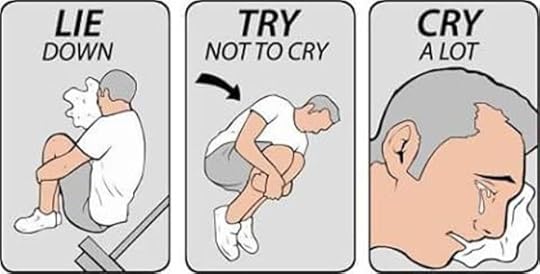
Lightning Strikes has been rejected by two agents so far.
Did you know that the quintessential, maybe even the greatest, American novel was rejected? According to a MasterClass article, when F. Scott Fitzgerald submitted The Great Gatsby to his publisher, he received this note from an editor: “You’d have a decent book if you’d get rid of that Gatsby character.” ARE YOU KIDDING ME? The novel was published by Scribner’s in 1925, with Jay Gatsby intact. While The Great Gatsby was criticized and sold poorly during Fitzgerald’s lifetime, it is now regarded as the Great American Novel and is a staple in high school curricula.
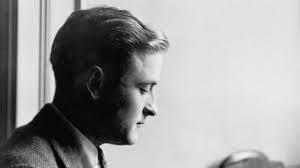
So rejection is part and parcel of being a writer. Even the good ones get rejected.
Did you know Stephen King’s first novel, Carrie, was rejected more than 30 times before being published in 1974 by Doubleday? Legend has it that the manuscript was actually turned down 80 times. Holy snot. According to the same MasterClass article, one rejection letter read: “We are not interested in science fiction which deals with negative utopias. They do not sell.” King kept rejection letters in his bedroom as a form of motivation to continue writing and submitting. After publishing a few novels, King submitted a number of short stories under the nom de plume Richard Bachman to see if his success could be replicated without his famous name. AND IT WAS!
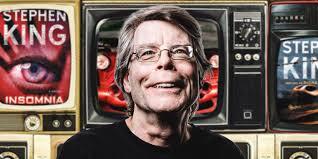
Neil Gaiman offers these four tips for dealing with rejection:
Share your feelings with a friend, and remember not to take the blow personally.It’s ok to be sad. You can even stop writing for a while if you need to. Concentrate on something else and then come back.Alternatively, you can take a different attitude and, in Gaiman’s words, “write something so brilliant that nobody could ever reject it.”Establish and maintain a writing ritual in order to promote self-worth after the sting of rejection. This includes creating and sticking to a project timeline, managing productivity with goals, and rewarding yourself when daily goals are met.[image error]I found this article from the aptly named Writers.com that offers ten tips for dealing with rejection.
Grieving periodI give myself 24 hours. I eat some pasta (or have some chocolate), but then I have to move on.Allow yourself to feel sad (outside of grieving process)
Honestly, this is just good mental health practice. Feelings have to be felt cleanly. This does not allow for wallowing, but it is an acknowledgment that rejection sucks, and the feelings of inadequacy and maybe even worthlessness will pop up from time to time.Don’t take it personal
This is much easier said than done. But a good mantra to repeat to yourself is this: The work was rejected, not me. And it’s good to remember that King, Rowling, Melville, and Fitzgerald were all rejected multiple times.Learn the difference between useful criticism and useless criticism
It’s best to be selective about the criticism you take seriously as a writer. I’ve been emailing with my beta reader, and I recently asked for clarification regarding one of her concerns. She’s been outstanding thus far, and I know her criticism is useful and worth the effort. Had it been mean-spirited or more about me as a writer than about the work, I would have ignored it.Edit your work
In my last post, I actually wondered if I was done editing Lightning Strikes. I don’t think I am. Granted the agents I’ve queried so far haven’t asked for more than the first twenty pages or so, but I know I rushed the ending and that’s exactly what me and my beta reader have been discussing. We met at the University of Limerick and funnily enough, the article says, “You could ask your writerly friends to read through it and give their honest feedback—maybe your old classmates from that English lit course in college?“Remind yourself why you love writing
I LOVE getting signs from the universe. My colleague and fellow writer, who’s about to publish her first novel (!), stopped by my room this morning to rave about a writer’s conference she recently attended, and she literally handed me a list of reasons why people write. Wild.Take a break
Again, this came up in my last blog post; maybe I need a long weekend somewhere. Or a staycation without writing.Learn from the rejection
Again, this might be easier said than done. But the article says it so eloquently: “Every rejection brings a lesson or lessons within it. These may be difficult to see, but at the very least, take each writing rejection as a chance to be strong and grow thicker skin. The plain truth is that not everyone will love your story: every story in the world has people who dislike it. What matters is that you put in the effort you need to be genuinely proud of your work.”Work on another project
I’m still trying to decide what that will be.Join a community of writers
My friends and classmates from Ireland have been filling this role quite nicely, but there are opportunities closer to home I plan on exploring very soon.Face your fear of rejection
Ultimately, to live is to face rejection. Rejection by publishers, by potential employers, by friends or romantic partners: we all have to accept, learn from, and let go of these painful experiences.
To deal effectively with writing rejection, the most important things we can do are to let ourselves grieve, and learn from useful feedback while disregarding useless feedback.
Frederick Meyer
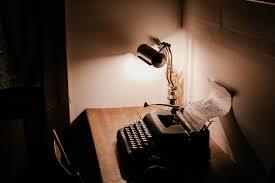
The post How to Deal with Rejection as a Writer appeared first on mandi bean: writer.
March 15, 2023
How to Start a New Writing Project

I’m feeling restless. Maybe my transitory lifestyle for the vast majority of the last two years has made a permanent alteration to my brain chemistry. But as I’m too broke to travel at the moment, I think I’m ready for my next writing project. I have a couple of ideas percolating, so as I try to narrow it down to a single focus, I thought I’d share some great tips on getting started that I found online.
Do What Excites You — Following your passion is the only way to go. I sometimes worry I’ll always be chasing the breathless feeling I had while writing Her Beautiful Monster . That book came so easily because I was so excited and into the story. None of my ideas are really grabbing me at the moment; is that a sign none of them are going to be my next project?Focus on Research — Maybe I just need to spend some time with each idea via research. Maybe falling down some Internet rabbit holes will inspire some passion. The article perfectly states, “Our mind is an ocean. It takes in whatever you feed into it. Therefore, the more you research what you write, the more organized and collected your mind will get. Watch movies, read the news, read books of different genres, and build credible ideas.” This happened while I was recently working on Lightning Strikes; once I started to research a particular character’s sleep disorder, the plot started to develop on its own. The symptoms of the disorder coupled with the side effects of the medication used to treat the disorder became fertile ground for some interesting plot points that really helped to move the narrative forward. Draft Out Your Work — I’ve already written at length about outlining and how it helps.Just Write — “It doesn’t matter what you write, how you write, and where you write. You just have to get on with it.” AMEN! PREACH!Embrace the Challenge — “You see, writing is never easy. One has to take it as a challenge. Consider it a do-or-die situation where you have to hit the extra mile to churn out a masterpiece. Once you achieve the short milestones, stop for a while and contemplate what you wrote.” Maybe this is where I am. I’ve just finished a novel and have started querying agents. Maybe I need to just relax? “There will be times when no new ideas would strike your head, and you will feel lost.” OH MY GOD, THIS ARTICLE IS SPEAKING TO ME! “But the important thing here is to be headstrong in achieving the challenge. Even if it takes a bit of time to get going. Never lose hope, and always be ready to write when a terrific idea invigorates your soul.”Accept Change — “Be open to change. Every story you read has been a rendition of an older one in some way or another. Art evolves, stories evolve, and sometimes the reworked stories turn out to be masterpieces. Remember one thing; no one can write your book other than you.” Beautiful.Oddly enough, as I was cleaning out my inbox, I found an email from Writer’s Digest that offered four tips for starting a novel.
Mise En Place — “Instead of avoiding all the heavy thinking and struggling that you might be putting off, you can let the physical world gently lead you into the story.” Maybe I need to go on a Creative Retreat; some place I love with just a pen and a notebook.Make the Marble — By which the author means, research (see above).Strategize — “Make a writing plan and stick to it.” AMEN! PREACH!Start Small — “In other words, you don’t try to write the thing in a few massive sessions, you do it in small, manageable pieces.” I can do that. I just need to get writing.But what should my next writing project be about? Answer this poll and help a sister out <3
What if I’m not done with Duke and Aurora just yet? What if that’s the origin of this restless, unsatisfied feeling? Should I do some more revising?
Stay tuned…
The post How to Start a New Writing Project appeared first on mandi bean: writer.
March 8, 2023
How I’m Becoming a Bohemian Beauty
I will freely admit that I’m easily influenced by pop culture. I’m the kind of woman that saw “Girl, Interrupted” and wanted to cut my hair short, dye it black, smoke cigarettes, and have an affair with an older man. In my younger years, I wanted to be a scene kid and I’m still in my emo phase (so it never really was a phase). Though some of interests have waxed and waned like the moon, many have been consistent … like my interest in Bohemian culture and fashion.
What does it mean to be bohemian?[image error]The dictionary defines a bohemian as “a socially unconventional person, especially one who is involved in the arts.” This BBC news article goes into more detail and explores the specific history of the term. For me, bohemian culture was further romanticized by “RENT” and “Moulin Rouge;” both stories of unconventional artists bucking tradition and safety and conformity to follow their dreams. Ladies and gentlemen, I am — if nothing else — a dreamer.
The emphasis on creating art, which for me means literature, suits me because writing is all I’ve ever wanted to do. If I could abandon comfort and conformity, be willing to be unsafe, I’d turn a van into a home and drive around and write. That truly is my ideal lifestyle. I wouldn’t need a cell phone with its social media apps that are the bane of my existence. I wouldn’t feel so much pressure to be married with kids, to be a homeowner. I likely wouldn’t spend so much time comparing myself to societal norms to arrive at the unavoidable conclusion that I’m falling behind.
To remove that which truly does not matter from my life appeals to the minimalist in me. Not only through intangibles like the weight of expectations, but through material possessions. I can have a groovy, witchy, colorful, beautiful wardrobe with just a few simple pieces that I can layer. But the colors and patterns and tendency to not match also allow for me to indulge my more extravagant fashion tendencies.
Dressing Bohemian
I walk the walk (for the most part) when it comes to being bohemian: I create art. I write every day. I’m also learning a musical instrument and have every intention of starting to sketch. I also am dressing more and more in the bohemian style.
Once I came back from Ireland, where I grew so much, I received tons of compliments on my style. I’ve been compared to Stevie Nicks more than once (what more can a woman ask for?) and colleagues have actually gone out of their way to tell me they appreciate my “witchy” style. And now that I’m on the fast track to becoming obsessed with “Daisy Jones & The Six,” I feel even more dedicated to my pursuit of fully and truly embodying a bohemian lifestyle.
This website really helped me get started and helped me curate a few staples for building my bohemian look:
maxi or midi skirtsI haven’t completely abandoned or relinquished my need to match outfits (I’m working on it, though; I promise) so I love having these in solid colors from black to dusty rose so I can pair them with an endless number of tops. And they’re great for all seasons–add leggings for winter, keep it breezy for summer.neutral-colored ankle boots
These boots survived Ireland, which is saying something. I did so much walking that I demolished a pair of sneakers and two pairs of boots–but not these. I love them and they can go with anything. I’m also partial to black, combat-looking boots. I wear those with literally everything.chic headwraps and headbands
To be honest, I’m not crazy about these. I only wear them when I’m washing my face. I’m much more partial to my hair being wild and crazy and hanging loose around my face. That being said, there are a few more styles I’d be willing to try.a unique maxi dress
I’m waiting for this number to be delivered right now
 I love wearing dresses. I feel beautiful and feminine and young and glorious. This summer, I want to be healthy and kissed by the sun and wear light fabrics and just be ethereal.leather (or faux leather) sandals
I love wearing dresses. I feel beautiful and feminine and young and glorious. This summer, I want to be healthy and kissed by the sun and wear light fabrics and just be ethereal.leather (or faux leather) sandalsI was a huge fan of these, but they started to deteriorate real fast. I have a pair of Birkenstocks (or faux Birkenstocks) that I swear by now. However, that being said, I would rather be barefoot. Especially after my sister gave e a book on grounding–do you know we’re not supposed to be disconnected from the natural electrical currents of the earth? All shoes are insulation against what could be a literal healing force four bodies. But I digress … slouchy knit cardigans and sweaters
This is one of my absolute favorite pieces of clothing. I need to buy it in other colors. It layers perfectly.a wide-brim hat and/or fedora
I have a ginormous head. My twin sister tried to buy me one of these for Christmas, and it just didn’t fit. I am still very much in the market for one.crop tops and/or breezy, loose tanks
I never ever thought I’d be into crop tops. Technically, I guess I’m not, but I’ve bought two cropped sweaters and I love them! I wear camisoles underneath, but once I feel comfortable, I want to wear them as God intended (so to speak). I just want to feel light and airy, and I think crop tops give just that vibe.colorful, eye-catching printseclectic, layered jewelrya hippie-chic purse
It’s so big! I lose everything in it, but I love it so very much.a versatile vest
Love this! Cannot recommend it enough! Layers with anything!flared jeans
Flared jeans have been a staple for me since middle school.big sunglasses
Also a staple of mine since middle school.oversized, patterned scarves
I have a ton but don’t utilize them nearly as much as I should. Maybe I need to watch some YouTube videos on the best way to accessorize them.
Undoubtedly, my trip across the pond to Ireland increased my confidence. I’m also seeing it present in the way I dress and see myself, which is a really cool change for me.
The post How I’m Becoming a Bohemian Beauty appeared first on mandi bean: writer.



